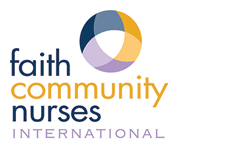Abstract
Background: Advance care planning allows people autonomy about values and preferences related to care at the EOL. Engaging in advance care planning enables one to consider decisions about medical treatment at the EOL and informing significant others, including health care providers, about preferences (National Institute on Aging [NIA], 2018).
Methods: In this QI project, the intervention will be a one-time ZOOM® meeting between nurse leaders and participating church members. The nurse leader will present the 5 Wishes curriculum and lead a question-and-answer portion at the end of the ZOOM® meeting. Participants will be asked to complete a short survey before and after the ZOOM® meeting. A comprehensive explanation for completion of the living will and health care proxy is explained during the 5 Wishes presentation. Nurse leaders will be available after the video presentation to respond to follow-up questions and provide further information about advance care planning to participating community members.
Outcomes: This project had 38 participants (n = 38) and two nurse leaders. 60% of the participants were female, predominantly white, between the ages 60 to 69 with a college education. The intervention did increase participants’ knowledge of how to create a living will and the purpose of a living will.
Conclusions: The findings of this project demonstrate the feasibility and efficacy of a church based educational program promoting advanced directive awareness and completion. 66% of the projects participants already had completed advanced directives prior to participating in this project. However, the participants generally had a poor level of understanding of their documents and how they were to be used. At the conclusion of the Zoom® meeting, statistical analysis demonstrated that participants had a better understanding of the purpose of their advanced directives and how to make changes to their advanced directive documents if needed.
First Page
31
Included in
Geriatric Nursing Commons, Palliative Nursing Commons, Public Health and Community Nursing Commons
